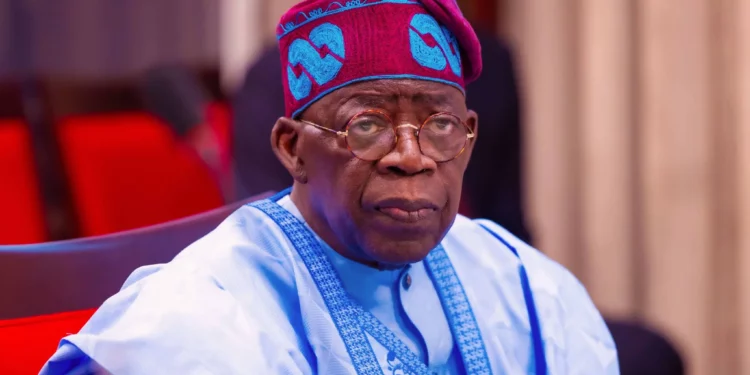Lamentation at Nigeria’s Foreign Missions
President Bola Ahmed Tinubu has spent much of his presidency jetting across continents, pitching Nigeria as an investment destination. From São Paulo to Paris, his message has been consistent: Nigeria is open for business.
But back home, and even more damning, abroad in Nigeria’s own embassies, the message is falling flat. The country’s foreign missions are in ruins, strangled by debt, starved of funds, and paralysed by the absence of ambassadors.
A comatose diplomacy
In September 2023, Tinubu recalled all ambassadors and high commissioners worldwide. Nearly two years later, the embassies remain leaderless. Career diplomats and locally-recruited staff are keeping the lights on, literally, sometimes by begging landlords or power companies not to cut supply.
“Some of our embassy staff, diplomats for that matter, have taken their children out of school because they couldn’t pay the school fees,” said Sunny Ofehe, executive assistant to the Delta State governor on external relations and diaspora affairs, in a recent interview with Channels Television. “We have more than 110 missions across the globe… and we don’t even have ambassadors.”
The absence of ambassadors is more than an inconvenience; it is undermining the very deals Tinubu has been signing abroad. In November 2024, Nigeria sealed a $2.5 billion agreement with JBS, the world’s largest meat processing company, in Brazil. The president returned there twice this year for yet another round of memoranda. But as Ofehe pointed out, there is no ambassador in Brasília to follow through. Without ambassadors, Nigeria’s deals risk becoming mere photo opportunities.
Strain beneath the surface
The decay runs deeper than appointments. Missions are buckling under financial strain, unable to pay salaries, rent, or service providers. Some are drowning in debt.
“The Ministry is not unaware of the restrictions that financial limitations have placed on the smooth running of the Missions,” admitted Kimiebi Imomotimi Ebienfa, spokesperson of the Ministry of Foreign Affairs, in a September 1 statement. He listed unpaid salaries, allowances, and rent among the challenges.
According to the ministry, years of budgetary shortfalls and foreign exchange fluctuations have left embassies crippled. A committee has now been set up to verify their debts, with “more than 80 percent of the available funds” cleared for payments. Intervention funds have also been released, while Tinubu has approved the settlement of shortfalls caused by foreign exchange differentials.
“Similarly, the Second Semester Allocations have also been approved,” the ministry said, adding that some missions have begun to stabilise.
Structural rot
For veterans like Chuka Udedibia, a former envoy to the Netherlands and ex-acting permanent secretary in the foreign ministry, these bailouts are little more than patches on a sinking ship.
He points to the collapse of Nigeria’s once deliberate policy of buying embassy properties abroad, a programme that slowed after 1999. Now, most missions spend heavily on rent. “Where the mission owns the chancellery… the expenditure is not much,” he explained. “But in countries where rents are required, costs are crippling.”
Currency depreciation makes matters worse. “About 10 years ago… one dollar to naira was 150. Today, it’s about 1,500 plus. At a point, it was even 1,800 plus,” Udedibia said. The result: remittances sent from Nigeria in naira terms no longer cover expenses denominated in dollars or euros.
And then, there is the politics. Udedibia blames the National Assembly’s “envelope system” of budgeting, which allocates funds not according to need but political interest. “The allocation does not go to the missions that need money,” he said. “Most of the time, from what I have seen, it’s about what is in it for me.”
Politics of appointments
Tinubu himself hinted at the political logjam. In a recent meeting with members of the defunct CPC and the Buhari Group, he admitted difficulty in drawing up the ambassadorial list.
“I couldn’t appoint everybody that I could have appointed, thank you for your patience till now,” the president said. “I still have some slots for ambassadorial positions that too many people are craving for, but it’s not easy stitching together those names.”
Diplomats fear this means career officers may once again be sidelined in favour of political allies. Ofehe described the situation as “a shame,” stressing that Nigeria’s credibility abroad depends on professionalism, not patronage.
The stakes
For a country campaigning for a seat on the United Nations Security Council and fielding candidates for top international posts like the Chief Justice of the International Court of Justice, the neglect of its foreign missions is more than embarrassing. It is self-sabotage.
The Ministry insists the crisis is temporary. “We are confident that the current challenges are temporary and will be overcome through the concerted efforts of this administration,” Ebienfa assured.
But until ambassadors are appointed, debts cleared, and embassies properly funded, Nigeria’s diplomacy will remain hobbled, leaving Tinubu’s globetrotting charm offensive looking increasingly hollow.








